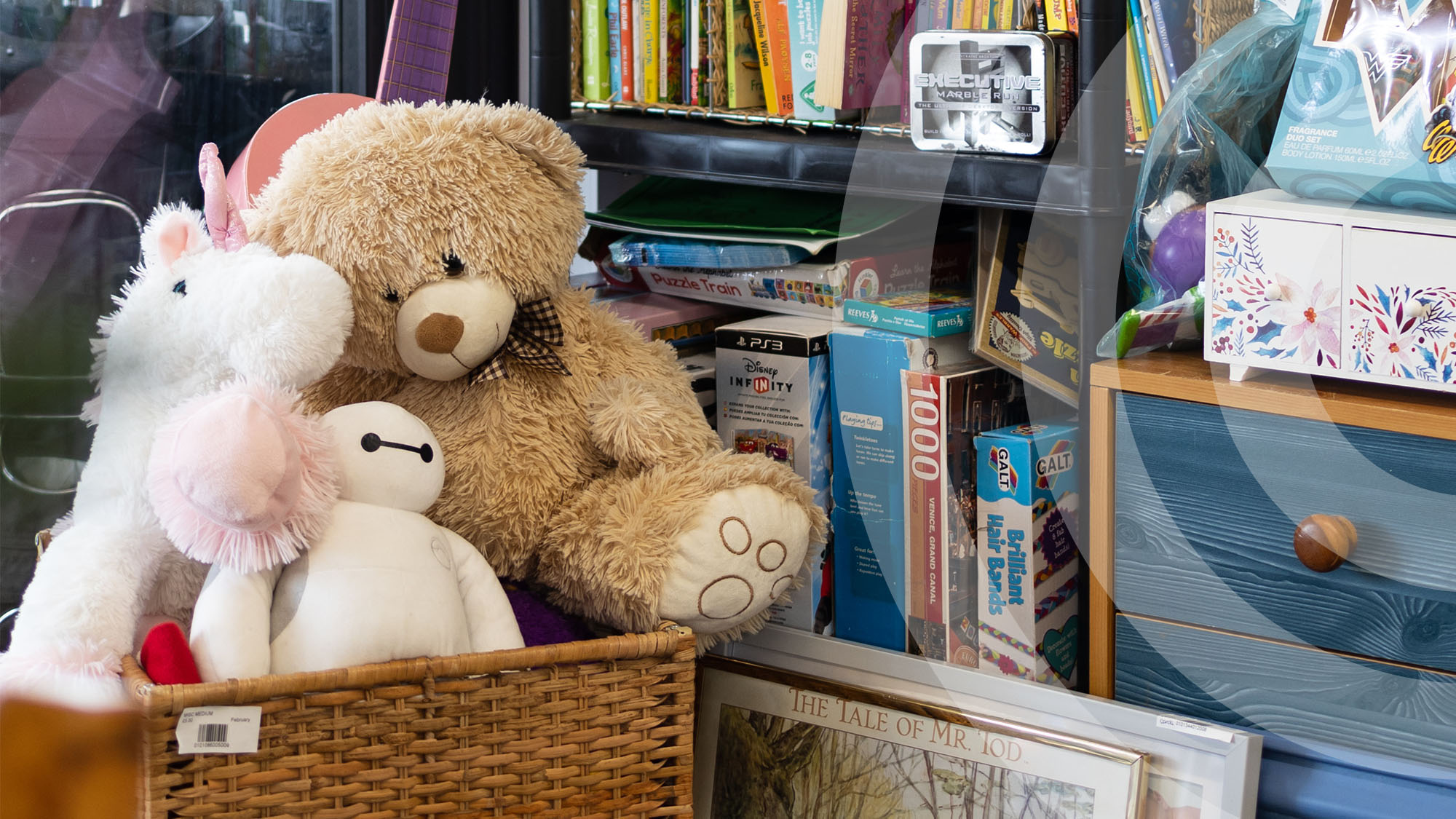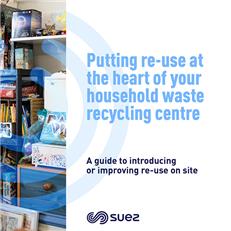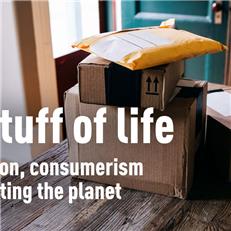SUEZ launches guide to support local authorities in integrating re-use at household waste recycling centres across the country
SUEZ predicts that household waste recycling centres will evolve to become household re-use and recycling centres, places where unwanted, pre-loved items are collected for upcycling, repair and re-sale. To encourage uptake and empower local authorities to make the switch, SUEZ has produced a new re-use guide with practical advice and deliverables.
In 2020, UK households generated a staggering 27m tonnes of waste.[1] Too many products available to consumers are either designed for replacement, or are manufactured in such a way that they cannot be easily repaired or refurbished. As consumption remains the single biggest threat to decarbonisation, discarded goods must be reused to reduce the need for primary resources and newly manufactured products. Today, SUEZ launched a new guide that provides practical advice on scaling up and maximising opportunities for re-use at household waste recycling centres across the country.
“Putting re-use at the heart of your household waste recycling centre” offers local authorities practical steps for converting household waste recycling centres (HWRC) to household re-use and recycling centres (HRRC). The new guide builds on key recommendations laid out in the “The stuff of life”, a report looking at the issue of overconsumption in the UK, launched by SUEZ earlier this year. SUEZ’s objective is to make re-use more accessible to consumers and generate economic, environmental and social value as part of the circular economy – delivering positive benefits to society through job creation, training opportunities and access to more affordable products.
Local authorities are not yet supported by a central government waste prevention strategy and a clear roadmap for increasing re-use does not exist. To promote the economic and social benefits of reuse to local authorities, and champion the widespread adoption of re-use, SUEZ have used their significant experience and learnings to produce an insightful advice guide, packed full of practical tips for authorities at the beginning of their re-use journey, or looking to develop their offering.
Broken down into actionable sections, some of the recommendations include:
- Training and having the buy in of your site staff are essential to the success of any re-use activity.
- Re-use models are most easily incorporated during refurbishment
- Support the public by creating a drop off point for items they identify as reusable, ideally located in as accessible and visible place as possible
- Develop a clear communications plan for any new or existing re-use activity to help raise awareness and prepare visitors for what to expect on site.
- Invest in a clear process for capturing and analysing data to help you to understand and adapt to re-use shopping models
Commenting on the new guide, Sarah Ottaway, Sustainability and Social Value Lead at SUEZ recycling and recovery UK, said:
“The UK’s net zero objectives will require us all to move toward a more circular economy. To achieve this, a collaborative industry approach focused on knowledge sharing and expertise, underpinned by strategic government policy is required.
“However, the adoption of re-use is far from universal, for a range of reasons including lack of investment, prioritisation and an absence of government incentives or targets.
“Using the knowledge and learnings we have acquired over the past decade, our new re-use guide will provide valued partners and peers in the sector with ideas and insights that maximise re-use in every location, support skilled job creation and generate revenue to support more developments and greater ambitions.
“The opportunity associated with re-use for society, the economy and the planet is huge, but we need to start setting the wheels in motion and encourage others to put theory into practice”.
The guide continues SUEZ’s strong pedigree of working in partnership with local authorities, and sharing expertise around the practice of re-use, which began in 2012 through work with Devon County Council. A decade on, SUEZ operates 27 re-use shops, often located at household waste recycling centres, where recovered goods are sold to local residents. Using the consolidated learnings from other locations, SUEZ has recently worked with GMCA on the Renew hub, a 6,000m2 warehouse, repair and repurpose centre, a click and collect retail location and a dedicated internet sales point for higher value items.
Following the publication of the guide, SUEZ will be hosting a webinar on 07 December 2022 at 11am. During the webinar, an expert panel will discuss the broader role of government policies, local strategies, and how the private sector and society in general can support re-use and repair initiatives to build a more sustainable future. The panel will include Dr Adam Read and Sarah Ottaway from SUEZ, alongside Richard Parkinson and Andy Rees from Surrey County Council and the Welsh Government respectively.
To register, visit https://register.gotowebinar.com/register/2920096602171042318?source=Reuse+webinar
[1] https://www.gov.uk/government/statistics/uk-waste-data/uk-statistics-on-waste#:~:text=Total%20UK%20WfH%20generation%20was,increase%20of%202.1%25%20from%202019.


